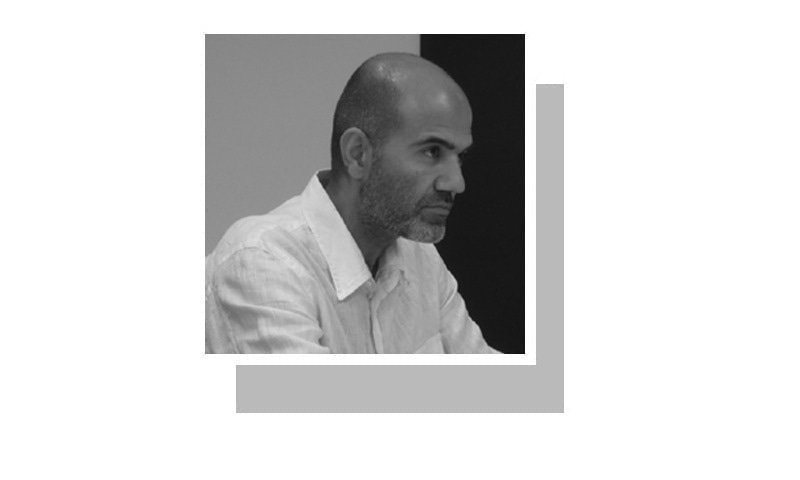THE world’s richest, most powerful people are gathered for their annual lovefest at the World Economic Forum in Davos. As they engage in small and some big talk, millions worldwide continue to fall through the cracks due to ongoing fallouts from shocks like Covid-19 and the Ukraine war. The historic peripheries of the world system, Pakistan included, are bearing the brunt.
Given Pakistan’s reliance on bilateral and multilateral aid, it is common for mainstream analysts here to hone in on the current state and future of relations between Pakistan and the world’s biggest economic and political players. But is this the only metric that matters?
Of late, there has been fleeting talk that postcolonial Asia, Africa and Latin America ought to revive radical political-economic imaginaries that persisted until the 1970s. In doing so, we could potentially push back against the power of global creditors and dominant economic orthodoxies.
As late as 1977, the G77 states articulated distinct economic and political interests to those of the rich, industrialised West, even making a case for a New International Economic Order (NIEO) that would dismantle colonialism’s economic foundation and inaugurate a regime of trade and economic cooperation to meet people’s needs.
We need an overhaul of the global political economy.
Unsurprisingly, such assertiveness met with a vindictive reaction from Western governments and MNCs. In some cases, radical regimes championing NIEO imaginaries were deposed through violent upheaval and, in general, debt and conditionalities were deployed to cut the ‘Third World’ down to size.
The rollback of progressive political-economic ideas and attempts to restructure the world system was historic in its scope and scale; more than 40 years later, our crisis of imagination is so acute that most analysts assume that Pakistan’s political and economic choices vis-à-vis the rest of the world can only conform to the logics of realpolitik and the profit motive.
This is most evident in the fact that there is virtually no resistance to the role of donors, other than rhetoric like that propagated by Imran Khan in 2018 that his government would break the begging bowl forever.
Debt remains a major tool of control over Pakistan’s economy. The fashionable lament that everything is the fault of our ‘elite’ glosses over the fact that Pakistan’s propertied classes share interests with and regularly engage in mutual deal-making with rich and powerful interests — including governments and businesses — in Western heartlands.
Yes, Pakistan needs an overhaul of the domestic political economy, but we and most of the G77 also need an overhaul of the global political economy. Take the recently concluded climate finance conference in Geneva which focused specifically on Pakistan’s post-flood needs. Approximately $10 billion were pledged by donors but almost $9bn of this amount will take the form of loans, assuming it ever materialises.
There is no way that the future of Pakistan’s teeming millions can be secured only through domestic restructuring. A distinct vision for the world system is necessary too — and geopolitical sloganeering celebrating the rise of China and Russia does not constitute such a vision.
What we need, instead, is an ecologically friendly and egalitarian project of economic development beyond neocolonial debt bondage and unbridled capital accumulation. In the first instance, this means taking advantage of our shared borders with countries that have historically been depicted as enemies — India, Afghanistan and Iran. Astute observers are aware of the huge illicit border trade that exists with all three of these countries. This could be formalised, criminalisation of petty traders ended, and mutually beneficial cooperation in sectors like energy, education, health and transport initiated.
More generally, the idea that animated the NIEO must be revived; that the historically colonised peoples of the world are expropriated and exploited both by an indigenous as well as a metropolitan bourgeoisie rooted largely in the core regions of the world system. This nexus has in fact been reinforced during the era of neoliberal globalisation, and remains dominant notwithstanding the largely rhetorical resurgence of economic nationalism in the West.
Let us also not forget that the fallouts of global warming are concentrated in postcolonial Asia — and slightly less so Africa — so responding to climate change is not only about securing financing/reparations from the West but also fomenting an alternative development practice within and across these regions.
A lot can be done and it will be hard to do it. But only by reviving such imaginaries can we hope to secure freedom and prosperity for the masses and undo the suffocating grip of a backslapping global-local ruling class.
The writer teaches at Quaid-i-Azam University, Islamabad.
Published in Dawn, January 20th, 2023













































Dear visitor, the comments section is undergoing an overhaul and will return soon.